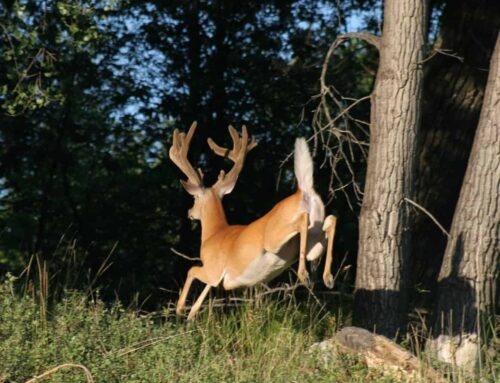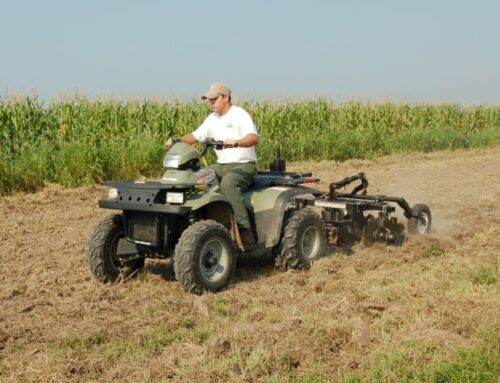 Heart attacks, injured backs and broken bones are among the most common medical emergencies for hunters. Physician Eric Grube, D.O., of the Mayo Clinic Health System in La Crosse offers tips for a safe hunting season.
Heart attacks, injured backs and broken bones are among the most common medical emergencies for hunters. Physician Eric Grube, D.O., of the Mayo Clinic Health System in La Crosse offers tips for a safe hunting season.
“I am a hunter and always need to remind myself to lead by example when I’m in the woods,” Dr. Grube says. “Hunting can be a fun sport…but we need to make sure that fun isn’t spoiled by some unfortunate accident.”
Wear clothing suitable for for the weather, stay level-headed, and always alert other hunters to your presence in an area, he says.
Other tips from Dr. Grube:
Watch for heart attack warning signs. One study of middle-aged male hunters found that the activities inherent to hunting — walking over rough terrain, shooting an animal and dragging its carcass, for example — sent their heart rates up significantly. Although opinion varies, many doctors caution that exercising at more than 85 percent of a person’s maximum heart rate increases the risk of heart attack. If you’re out of shape, take breaks to rest, especially when hiking hard or dragging out a buck.
Falls are common cause of injuries, and often happen when a hunter is up a tree… check equipment and stands and use safety belts. The average fall from a tree stand is about 15 feet. Injuries suffered from those heights can cause broken bones, paralysis, or even death.
Let family members know where you’ll be hunting and take two-way radios or loud whistles along in case help is needed. A surprisingly large number of hunting accidents occur between family members and friends who have gone out together, but do not remember or know where their party has gone in the woods, Dr. Grube says.
Carry a first aid kit in your daypack, whether you’re hunting close to home or in the backcountry. Learn basic first aid before heading to the woods, including how to administer cardiopulmonary resuscitation or hands-only CPR, which consists of chest compressions, should a hunting partner have a heart attack.
Good luck and be safe in the woods.





